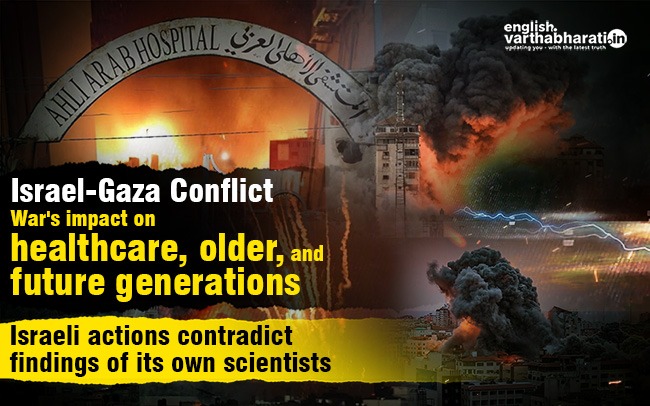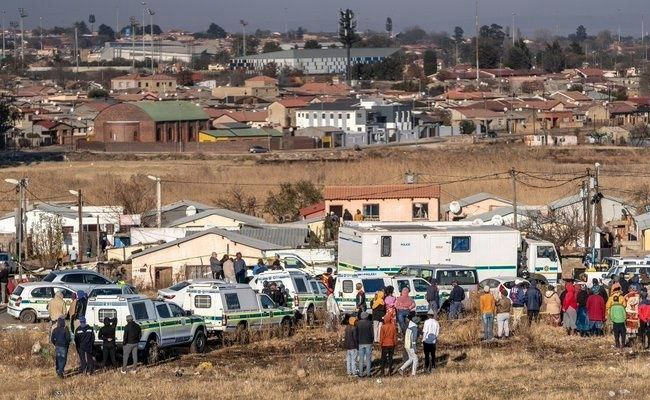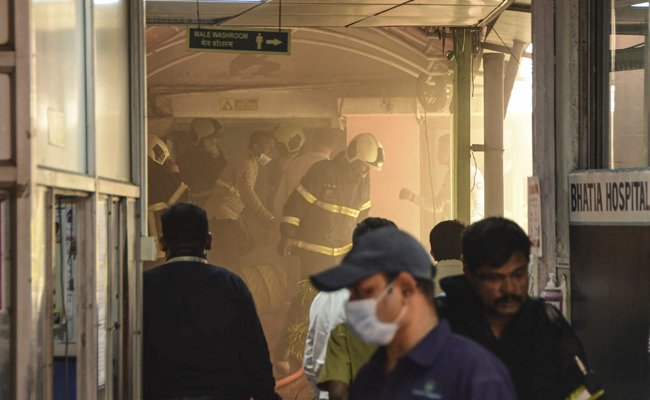In times of war, things get tough, especially for healthcare and older people. Right now, in the Middle East, Israel is bombing Palestine, and it's showing us just how much war messes with not just hospitals but also the minds of the people going through it.
When wars happen, hospitals take a big hit. They're not safe either. This doesn't match up well with what Israeli scientists have found in their studies about how wars affect older folks. These studies tell us a lot about how wars mess with the minds and bodies of older people.
But, there's a confusing part here. Even though Israeli scientists have researched and delved into studying the impact of war on older people and healthcare, their own country is doing things that go against what they're learning and are considered war crimes. They're bombing hospitals in Gaza, where resources are already really scarce. Through this article, we want to shed light on the consequences of war on health and mental well-being, especially looking at what's happening right now between Israel and Palestine.
During war the mental toll on oppressed communities is immense. Elderly folks, already more vulnerable, suffer physically and emotionally. Studies, including those conducted by Israeli scientists, highlight the harsh effects of conflict on older individuals—increased stress, health issues, and emotional distress.
The bombardment of hospitals in war zones worsens healthcare conditions, leaving communities without vital services. For those enduring oppression during wars, mental health bears a heavy burden. Anxiety, depression, and trauma become everyday struggles.
The constant threat of violence and loss exacerbates these challenges, creating a complex web of suffering. Understanding the far-reaching consequences on both health and mental well-being is crucial, especially in the context of ongoing conflict, where the very studies undertaken by Israeli scientists underscore the need for protecting the vulnerable, yet the actions on the ground tell a different story.
“The residents of Gaza, who saw fit to turn the hospitals into terrorist nests in an attempt to take advantage of Western morality, are the ones who brought their destruction upon themselves – terrorism must be eliminated everywhere and in any way. Attacking terrorist headquarters located inside a hospital is the right, and even the duty of the IDF,” this statement was signed publicly by dozens of Israeli doctors and shared widely on various social media platforms.
The public endorsement by Israeli doctors of targeting hospitals in Gaza, under the pretext of eliminating terrorism, is both morally reprehensible and condemnable. Such a stance not only contradicts the principles of medical ethics but also jeopardizes the sanctity of healthcare institutions, which should be safe havens for all, irrespective of the geopolitical context.
Hospitals are meant to be neutral zones, safeguarding the lives and well-being of civilians, regardless of the circumstances surrounding a conflict. The endorsement of attacking hospitals undermines the fundamental tenets of medical practice, which prioritize the protection of life and the alleviation of suffering.
The argument that hospitals in Gaza are intentionally turned into "terrorist nests" is a dangerous oversimplification that neglects the reality faced by civilians in conflict zones. Civilians, including the sick and injured, often seek refuge in hospitals for safety, and targeting these facilities jeopardizes the lives of those who are already vulnerable.
The study titled "Elderly People Coping With the Aftermath of War: Resilience Versus Vulnerability" conducted by Israeli scientists, including Shaul Kimhi Ph.D., Shira Hantman Ph.D., Marina Goroshit M.A., Yohanan Eshel Ph.D., and Leehu Zysberg Ph.D., delves into the complex dynamics of how elderly individuals respond to the aftermath of war.
The research challenges the conventional categorization of older people into solely vulnerable or resilient groups. Instead, it suggests that elderly participants demonstrated concurrent responses, showcasing both vulnerability and resilience. While older individuals exhibited higher levels of postwar stress symptoms, they also demonstrated a heightened sense of coherence, indicating a multifaceted coping mechanism.
The study contributes to the growing understanding of how different age groups, particularly the elderly, navigate stress and its aftermath. It acknowledges the contradictory nature of existing research, which often presents two opposing perspectives: vulnerability versus resiliency.
In the context of war, a significant source of stress, the study acknowledges the enduring traumatic effects, distinguishing between detrimental outcomes such as postwar stress symptoms and anxiety, and potential beneficial stress-related outcomes. The focus on general stress symptoms as a measure provides a comprehensive view of the potential impact of war on the elderly.
The study "Impact of forced displacement during World War II on the present-day mental health of the elderly" conducted by Israeli scientists Philipp Kuwert, Elmar Brähler, Heide Glaesmer, Harald Jürgen Freyberger, and Oliver Decker in 2009, provides significant insights into the enduring effects of historical trauma.
The research reveals a compelling association between forced displacement during WWII and the present-day mental health of the elderly. Individuals who experienced displacement during the war exhibited higher levels of anxiety and lower levels of resilience and life satisfaction six decades later. Regression analyses underscored the enduring impact, showing that forced displacement significantly predicted current anxiety, life satisfaction, and resilience.
This study, the first of its kind on a nationwide scale, emphasizes the long-term psychological consequences of wartime displacement. It calls for further exploration of mediating variables and the evaluation of psychotherapeutic interventions to support elderly trauma survivors, underscoring the importance of addressing historical trauma's persistent impact on mental well-being.
Despite the research conducted by Israeli scientists on the impact of war, the Israeli government continues its campaign of oppression and war crimes against the people of Gaza. The paradox lies in the stark contradiction between the findings of their own scholars, emphasizing the devastating consequences of conflict on health and well-being, and the ongoing military actions that target hospitals and civilians in Gaza. This disjunction underscores the need for introspection and a reconsideration of policies, as the very nation contributing to the understanding of the detrimental effects of war on vulnerable populations is simultaneously perpetuating the very harm these studies aim to comprehend.
In the midst of the Israeli-Palestinian conflict, Palestinian children and elderly residents grapple with the severe repercussions of oppression and war crimes. The constant exposure to violence, loss, and displacement leaves an indelible mark on the younger generation, shaping their future with trauma that can manifest in enduring psychological scars. The disrupted childhoods of these young individuals, marred by the trauma of war, may have profound implications for their development, education, and mental well-being as they navigate the challenges of growing up amidst conflict.
Simultaneously, the elderly in Palestine face the daily distress of war, exacerbating their existing vulnerabilities. The persistent threat of violence, coupled with limited access to essential resources, compounds the physical and mental health challenges faced by this demographic. Surviving the conflict leaves an enduring impact on the older generation, influencing their quality of life, mental resilience, and overall well-being. The immediate and long-term effects on both the young and old asserts the urgent need for international humanitarian efforts to address the ongoing crisis, offering support and relief to those trapped in the midst of conflict.
Let the Truth be known. If you read VB and like VB, please be a VB Supporter and Help us deliver the Truth to one and all.
Johannesburg (AP): A 32-year-old suspect has been arrested in connection with a mass shooting which claimed the lives of 12 people including three children at an unlicensed pub earlier this month, South African police said on Monday.
The man is suspected of being one of the three people who opened fire on patrons in a pub at Saulsville township, west of South Africa's capital Pretoria, killing 12 people including three children aged 3, 12 and 16.
At least 13 people were also injured during the attack, whose motive remains unknown.
According to the police, the suspect was arrested on Sunday while traveling to Botlokwa in Limpopo province, more than 340 km from where the mass shooting took place on Dec 6.
An unlicensed firearm believed to have been used during the attack was recovered from the suspect's vehicle.
“The 32-year-old suspect was intercepted by Limpopo Tracking Team on the R101 Road in Westenburg precinct. During the arrest, the team recovered an unlicensed firearm, a hand gun, believed to have been used in the commission of the multiple murders. The firearm will be taken to the Forensic Science Laboratory for ballistic analysis,” police said in statement.
The suspect was arrested on the same day that another mass shooting at a pub took place in the Bekkersdal township, west of Johannesburg, in which nine people were killed and 10 wounded when unknown gunmen opened fire on patrons.
Police have since launched a search for the suspects.
South Africa has one of the highest homicide rates in the world and recorded more than 26,000 homicides in 2024 — an average of more than 70 a day. Firearms are by far the leading cause of death in homicides.
The country of 62 million people has relatively strict gun ownership laws, but many killings are committed with illegal guns, according to authorities.
According to police, mass shootings at unlicensed bars are becoming a serious problem. Police shut down more than 11,000 illegal taverns between April and September this year and arrested more than 18,000 people for involvement in illegal liquor sales.





